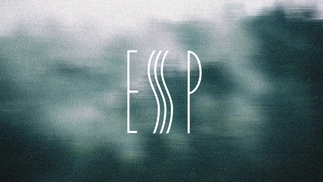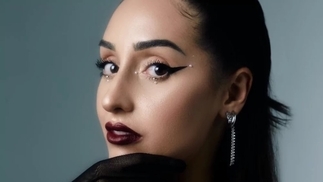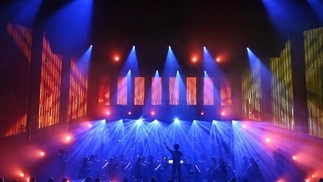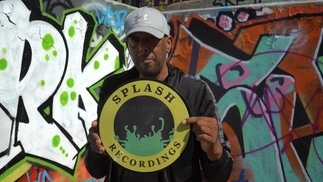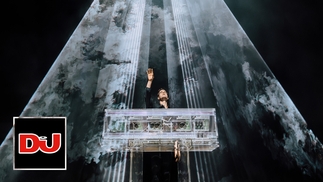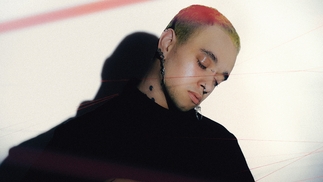The Sound Of: Deep Jungle
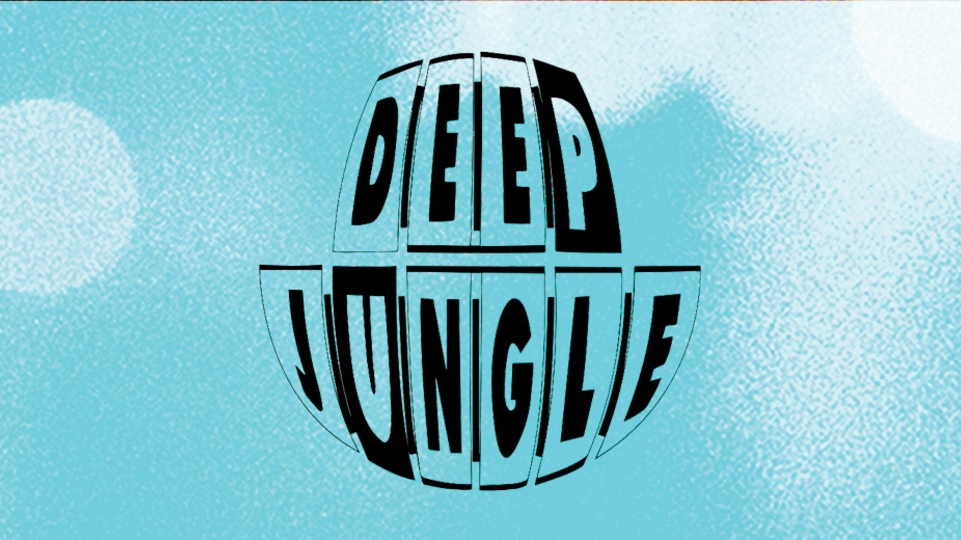
Releasing both hidden gems from the old school and essential new-gen bangers, Deep Jungle has secured a reputation for buy-on-sight junglism. Alongside a mix representing the past, present and future of its catalogue, founder Harmony shares the secret of the label’s success with Ben Hindle
To say that Deep Jungle has become one of the jungle scene’s premier labels in under five years would be an understatement. Since pretty much the moment it relaunched in 2017 (it was initially founded in ’94, but put out just a handful of releases), Lee Bogush’s outlet has been a source of must-have tracks, particularly for diggers and vinyl nuts.
Much of this is down to the exclusive nature of its initial output, repressing ultra-rare cuts and sharing unreleased dubplates from the early ’90s — the kind that often go for three figures on Discogs, if they’re available at all. But what’s cemented Deep Jungle as a crucial part of the modern scene is its expansion into supporting the new wave of producers too, and crucially, making sure everyone is paid for their art.
Lee himself — better known as DJ and producer, Harmony — put out some classic cuts during jungle’s foundational era, including the upfront, original Deep Jungle track ‘Wicked & Bad’ alongside Xtreme (which he repressed in 2020), and he worked at legendary King’s Road record shop Lucky Spin. However, as time went on, he found himself “disconnecting from the scene”. Like many young artists caught up in the creative explosion and subsequent gold rush of dance music in the ’90s, he achieved success but found himself disappointed by the way business was handled.
It’s no secret that many seminal labels were also unscrupulously run, pocketing the cash while leaving producers high and dry. Alongside that, he’d become a father to twins, so his priorities shifted, and to cap it all off, the music was evolving so rapidly that by the end of the decade the breakbeat-driven hardcore and jungle Lee had fallen in love with had been replaced by the sparse rhythms of drum & bass.
The stage was set for Lee’s departure from the scene — publicly at least. He remained in the background, holding on to his friendships and making loops whenever he had the time. Over the ’00s, his family expanded, and he spent some years as a professional poker player and battling illness, but by around 2010 the kids had grown up and he once again found himself with time to focus on music. He fell into buying choice DJs’ record collections, spotting an interest for classics and hidden gems online and wanting to improve his own hoard. During this time, he also picked up a load of old DAT tapes — the primary storage device for producers in the ’90s — and around 2016 hit upon the idea of launching a label to share some of the unreleased tracks he’d uncovered, meeting the growing demand for retro sounds.
There was only one place to start: Dillinja. Having picked up quite a few unheard tunes from the iconic producer, he asked about the possibility of releasing them, and was met with a firm ‘no’. More than once. But on his birthday in May 2017, Lee tried his luck one last time and got the answer he was looking for. “I said, ‘Look, I’ve got all these tunes, they’re on DAT, it’d be mad just to leave them, let me chuck you some money, see how it goes’,” Lee recalls. “In the end he said, ‘Ok, pay me this now, and do it’.”
Deep Jungle officially returned in September that year with cosmic cut ‘Another Dimension’ and the guttural flip ‘Humanity’. Since then, the label’s dropped four more Dillinja 12”s, including the much- loved ‘Deadly Deep Subs’ and ‘Sovereign Melody’, the latter backed with a previously unreleased VIP that gained a lot of traction thanks to its infectious, rubbery bassline and explosive second half. Other vintage releases have included newly unearthed and remastered music from pioneering artists like Adam F, Red Light (aka Shut Up & Dance), DJ Nut Nut, Pascal and Grooverider. “It’s only been Dillinja and Groove that I’ve had to chase a little bit, ’cause I knew once I’d got them on board, the domino effect would happen,” Lee explains of the signing process. “People would go, ‘If he’s got Groove, if it’s got Karl, something must be going on here’, and it’s exactly what happened, so I didn’t really need to fight beyond that.”
Through foresight and a good relationship with his pressing plants, Lee has ensured he’s not been hit with the same delays as other labels, and can offer a reliable source of income to his artists. “I’m not here to show off,” he says. “I always wanted to do this — have a label the artist could trust ’cause they get paid. All of them have been knocked, every one of my artists, somewhere along the way — labels didn’t pay them, people don’t pay royalties, people have just taken the piss.” Bucking this trend has been an important part of securing the more elusive artists — and keeping them coming back for more.
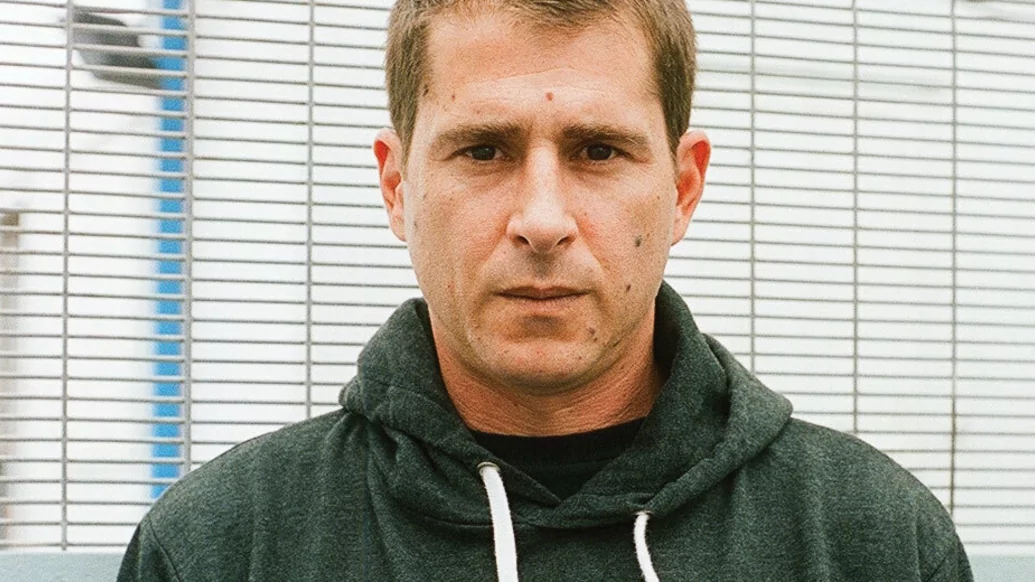
Another key factor for Lee is finding — and if need be, restoring — the original DATs, rather than ripping tracks from vinyl. “It’s kind of my M.O.,” he says. While he’s not “dead against” vinyl rips, and doesn’t want to throw shade at labels who do operate that way, he feels the quality doesn’t stand up against the DAT-sourced tracks. And besides, “I’m up for the extra work, I’ll come over and dig through your loft, I don’t mind,” he adds with a grin. He’s not ignorant of the naysayers — those who argue that ‘if it wasn’t released in the ’90s, it’s probably not good enough to release now’. But Lee reckons that shows a fundamental misunderstanding of the scene back then.
“Music moved so fast in the ’90s, there was no sticking to a sound,” he explains. “Say I played a ’94-sounding jungle tune to Rob Playford in ’96, he’s gonna go, ‘Errr, it’s moved on a bit now Lee’, whereas you play me that ’94 tune now, I’m taking that from you. So there is a lot more than people realise that is unreleased, and obviously finding all the DATs that I find, there’s never one or two tunes on a DAT tape, there’s always seven or eight — one or two that were used, two or three of them are terrible, but one or two aren’t.
“People didn’t wanna spend the money on a DAT for a 15[-minute] tape, they bought a 90 or a 60 and then they thought, ‘Fuck it, I’m gonna fill that up so if I’m in [’90s dubplate cutting house and producer hub] Music House, I can play all my tunes to people. People are forgetting the mentality of what it was like and how we handed tunes around back then.”
Instrumental in the label’s progression has been its move into releasing new music too. “I didn’t wanna pigeonhole myself as just that label,” says Lee. It began with ‘DAT024’ in 2020, Harmony’s first new release in around two decades. “I found Ableton around 2019, and I found that the ideas just flowed more,” Lee recalls. And they’ve continued to flow. Lee has dropped nine 12”s of new material since that point, plus an album, 2020’s ‘Resurgence’.
He’s also worked on collaborations with the likes of Tim Reaper for his Future Retro label (which will see a joint release with Deep Jungle later this year), done a single for Over/ Shadow (coming full circle from his signing to Moving Shadow back in the day), and has a new LP, ‘Resurgence Episode II’, ready for the summer. Dedicated to his mum who passed away recently, the new album is a wide- ranging collection of both melancholic and blissed-out rollers and weaponised Amenism. It will be followed by a third at some point too, Lee promises — “I’m a bit of a Star Wars geek, so I thought if I’m gonna do an album, it’d be cool to do a trilogy”.
Around his own work, Lee has built up a solid crew of contemporary artists like Tim Reaper, Kid Lib and Phineus II, who work at jungle’s bleeding edge without diluting its original essence. “If it was ’94, these boys would all be part of our scene, and I think it’s important to show them that,” he says of the new-gen artists. “Not that these guys need verification from me, but I want Deep Jungle to represent both the old and the new.”
He shouts out his Skype group, which also includes Dwarde, Dev/Null and Equinox. “We’re a really close unit of people and we all help each other, and they’re a massive part of what I do. All of those boys inspire me to make better tunes, to push this scene forward, to help them with their labels, because no one man can do it.” Jungle has historically been a scene built on crews, and while it’s difficult to replicate that as a reissues label, having the modern side too has afforded Harmony the best of both worlds.
Aside from his album, the next few releases will be returning to the past, with reissues from Lucky Spin outfit Orca — another act whose originals are now wildly expensive — plus DJ Trace and some other OG artists we can’t yet reveal. Then it’ll be back to the new lot for a spell.
“I wanna leave a great legacy, I want the artists to know that Deep Jungle’s a place they can come and put their music out, done properly and show that we are a genre,” he says, referencing a tendency for outsiders to talk about jungle like it was just a stepping stone towards drum & bass. “We’re here to stay now, we’re not going anywhere, and some of us are only getting more deep into it.”
Tracklist:
Harmony 'Merciful'
DJ Trace 'Coffee (Harmony Remix)'
Subjects 'Your All'
Dwarde & Tim Reaper 'Holding on'
Harmony 'Cloud Burst'
Orca 'Superpod'
Harmony 'Luna'
Pascal 'Red Face'
Harmony 'Beets'
Orca 'Intellect VIP'
Harmony 'Fly Away'
Orca 'Tranquility To Earth'
DJ Crystl 'I Can't Understand'
Dwarde & Tim Reaper 'Aquatics'
Harmony 'Stop It'
Harmony 'Just Listen'
Harmony 'Everybody'
Subjects 'Goblin'
DJ Trace 'Lost Entity'
